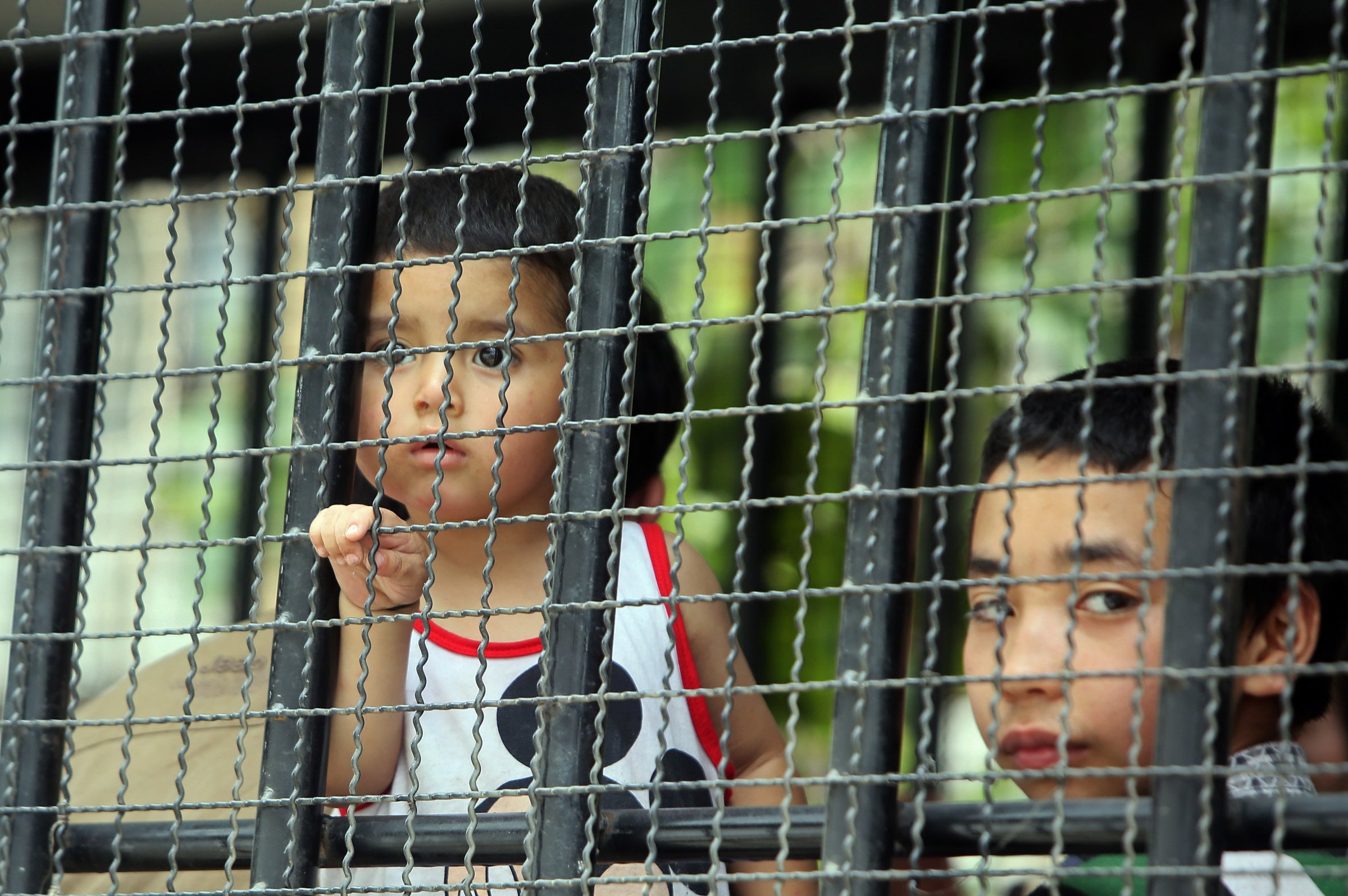
Significant trauma is being experienced by thousands of refugee children being held in squalid detention centers in Thailand, claims a new report from Human Rights Watch (HRW).
The 67-page document, Two Years With No Moon: Immigration Detention of Children in Thailand, was published Tuesday and accuses Thailand of violating children’s rights, impairing their health and imperiling their development.
“Migrant children detained in Thailand are suffering needlessly in filthy, overcrowded cells without adequate nutrition, education or exercise space,” says report author Alice Farmer, children’s-rights researcher at the New York City–based advocacy group. “Detention lockup is no place for migrant children.”
Because there is a lack of legal and other mechanisms by which they can be released, many of the children are detained indefinitely, sometimes for years.
There are approximately 375,000 migrant children in Thailand, say experts, the largest number from Burma, officially known as Myanmar, where thousands have fled the world’s longest running civil war as well as recent pogroms against the Rohingya Muslim minority. Other young refugees hail from Pakistan, Sri Lanka, Somalia, Syria and elsewhere.
Unfortunately for them, Thailand has not ratified the 1951 Refugee Convention and does not have functioning asylum procedures. If caught, undocumented aliens run the risk of being put in immigration detention, often in harsh conditions.
HRW researchers say that they found children were being crammed into cells so crowded that they had to sleep sitting up, and that the children were being housed with unrelated adults, risking sexual and physical abuse.
“I interviewed children who were terrified of some of the people they met in detention,” Farmer tells TIME. She claimed that that the conditions violated “the U.N. minimum standards for detention centers.”
“The worst part was that you were trapped and stuck,” says Cindy Y., a refugee detained between the ages of 9 and 12, told HRW. “I would look outside and see people walking around the neighborhood, and I would hope that would be me.” She was one of 41 children interviewed for the HRW report.
Thailand has denied that it is failing refugee children in a seven-page written response to the HRW. “Detention of some small number of migrant children in Thailand is not a result of the government’s policies but rather the preference of their migrant parents themselves (family unity) and the logistical difficulties,” it said.
“The Thai government is trying its best to address and accommodate the needs of migrant children, bearing in mind the humanitarian consideration and fundamental human rights. In addition, it is worth to mention [sic] the Thai officers who work tirelessly amidst all constraints to help sheltering these migrants. Their work deserves understanding as well as recognition.”
The only choice for the refugees is to return to their country of origin — a prospect many cannot countenance for fear of violence, persecution, torture or death — or else wait in the slim hope that they will be accepted for resettlement in a third country. It is a soul-destroying limbo.
“These kids have nowhere to go,” says Farmer, “and ultimately stay in detention indefinitely with no understanding of what will happen to them down the line. It puts a very big burden on the shoulders of some very small people.”
More Must-Reads from TIME
- How Donald Trump Won
- The Best Inventions of 2024
- Why Sleep Is the Key to Living Longer
- Robert Zemeckis Just Wants to Move You
- How to Break 8 Toxic Communication Habits
- Nicola Coughlan Bet on Herself—And Won
- Why Vinegar Is So Good for You
- Meet TIME's Newest Class of Next Generation Leaders
Write to Charlie Campbell at charlie.campbell@time.com